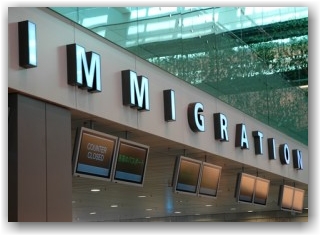The Heavy Lift of Immigration Reform
Monday, June 17th, 2013After considering some 200 amendments to the Gang of 8’s immigration bill entitled the Border Security, Economic Opportunity, and Immigration Modernization Act of 2013 (a/k/a CIR, or Comprehensive Immigration Reform), it survived the Senate Judiciary Committee overhaul and has been introduced onto the floor of the Senate for further debate taking place this month. It is the goal of the Senate to complete their work on the Bill by the July 4th recess. On the weekend talk show circuit, Lindsay Graham (S-SC) told conservatives who are trying to block the measure that they will doom the party. Sen. Robert Menendez, D-N.J., went a step further and predicted “there will never be a road to the White House for the Republican Party if immigration overhaul fails to pass.”
The big question is – will the House of Representatives cooperate and pass a bill? The theory on this is that the purpose of the legislative process right now is for the House to get a bill passed. It could be a good or bad bill; it just has to be an intact bill because once something makes it through the House, it will go to conference with the Senate and the Committee will compare the two bills and draft a compromise bill that both chambers can accept
The Temperature on Immigration Reform in the House of Representatives:
While many House conservatives agree immigration reform is a critical priority for Congress, they part with President Obama, Senate Democrats, and some in their own party who believe allowing eventual citizenship to those in the country illegally is part of the solution. They vow that they won’t support any bill that adds to the deficit and they want to see a tougher approach to border security and to the benefits issue.
Not only has the federal government consistently increased spending on border enforcement, it has also met the border-security benchmarks laid down in the three immigration-reform bills introduced in the Senate since 2006. Read more on border security here
The GOP insists that newly legalized workers now working in the shadows have no access to government-sponsored health care during their 15-year pathway to citizenship. Democrats say that since these newly legalized immigrants would be paying taxes (millions already do pay taxes), they should be eligible for benefits.
In the end, both chambers of Congress must eventually pass the identical legislation for the bill to make its way to the President’s desk to become law. The question is…Will House Republican leadership pass a bill or fail?
White House Official stated to the Daily Caller, “If a Gang of Eight-style bill is signed into law by the President, it will probably be one of the top five legislative accomplishments in the last twenty years.”
For a Summary of S 744 refer here. Refer here for more on the progress of S. 744 in the Senate, the text of bill, the summary and the proposed amendments.
The House Judiciary Committee markup of the bill starts this week, and will start with SAFE Act (H.R. 2278), a bill to improve the interior enforcement of our immigration laws and strengthen national security and will then take up the AG Act (H.R. 1773), a bill to provide American farmers with a workable temporary agricultural guest worker program that will help provide access to a reliable workforce. Read more here


